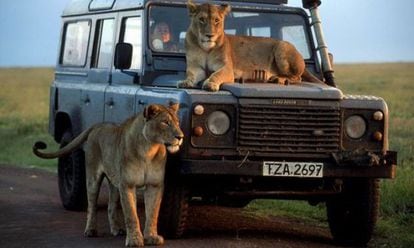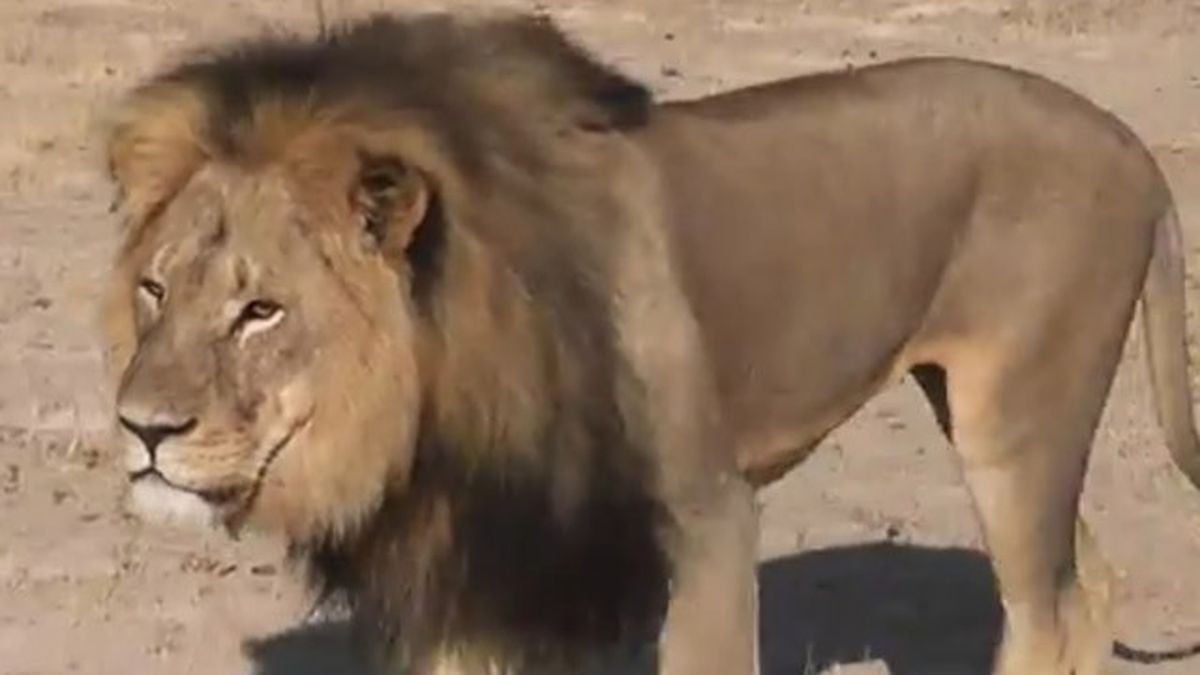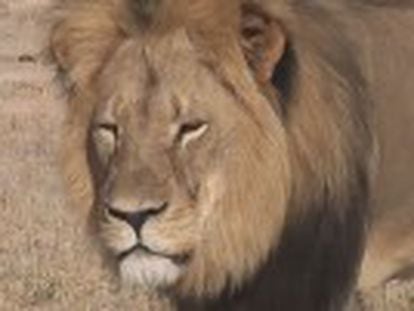Spain, leader in ‘canned lion’ trophies
Spaniards only surpassed by US hunters in their appetite for shooting tame game in Africa
When it comes to hunting African lions, Spain is a European leader, easily surpassing other EU countries and even Russia as the top destination for imported lion trophies – skins, heads, entire stuffed animals or just parts of them.
What makes conservationists particularly angry is the fact that around 80 percent of these lions were killed in what is known as “canned hunts.” These lions are raised in captivity, then released in enclosures with the sole purpose of becoming easy targets for foreign tourists armed with guns.
Hunting is a highly regulated activity. You can’t just hunt a lion and waltz into Spain with it”
Spanish Hunting Federation
Between 2010 and 2013, the last year with available figures, Spain imported 364 lion trophies from Africa, significantly more than France (128) and Germany (160). Globally, only hunters from the United States are more active, with more than 3,000 trophies to their name during this period.
The figures are provided by CITES, the Convention on International Trade in Endangered Species of Wild Fauna and Flora, to which Spain is a signatory.
Safaris organized from Spain
Travel agencies say that the average customer for an African safari has changed from a middle-class man in his forties to a wealthy one in his fifties. While the occasional woman signs up, the majority are men.
"Hunting is a highly regulated activity," says a spokesperson for the Spanish Hunting Federation. "You can't just hunt a lion and waltz into Spain with it."
While Spain’s predominance in this field was a well-known fact, it has gained new prominence with the recent death of Cecil, a famous lion from Zimbabwe. Initial reports claimed that the hunter was a Spaniard, while some media later said he was an American. The hunter’s identity has not yet been confirmed.
“Spain is the main European importer of these kinds of trophies, and 82 percent come from lions who were killed on canned hunts,” explains Chris Macsween of Lion Aid, a UK charity that has done research on the subject.
Far from being wild, these lions are bred and raised on ranches until they are mature enough to become a target for foreigners wishing to experience what it is like to kill “the king of the jungle.” Most of these animals are bred in South Africa, where canned lion hunts are not only a perfectly legal practice but also a booming business. Between 6,000 and 8,000 lions are bred there each year to satisfy global demand in an industry with an annual turnover of €10 million.
Once old enough, the tame lions are released into fenced enclosures where they have no possibility of escape, allowing the hunters to kill them in very little time: a three-day hunt has a success rate of over 99 percent. By comparison, wild lions are hunted down for as long as two or three weeks.
This also means that a canned lion is significantly cheaper to kill: between €20,000 and €30,000 per male (€4,500 for a female), compared with €75,000 to €110,000 for a wild lion chase, according to Lion Aid.

The mystery hunter who shot down Cecil after luring him out of Zimbabwe’s Hwange national park allegedly paid €50,000.
Supporters of canned hunting claim it helps the conservation of wild animals by encouraging South African ranchers to preserve their surrounding environment and by making lion hunting more accessible, thus discouraging poaching.
But these arguments have failed to convince animal welfare groups, scholars, or even hunting associations, many of which view the practice as immoral because it takes away the principle of fair chase.
There is no evidence that the surge in canned hunts is improving the situation of the wild African lion, which is protected under CITES. What’s more, the market for pseudo-medicinal products derived from lion body parts has surged again in Asia after a successful international effort to reduce the commercialization of illegal tiger products.
For all these reasons, Australian environment minister Greg Hunt has banned all lion trophy imports to end “the barbaric practice of canned hunting.” Now, several groups are asking the European Commission to do the same.
Early this year, Environment Commissioner Karmenu Vella recognized the controversy and applauded new European legislation suspending imports of lion hunting trophies from countries that have received a “negative opinion” from the EU’s Scientific Review Group.
There is no evidence that the surge in canned hunts is improving the situation of the wild African lion
But these countries do not include South Africa, where hunting canned lions is still perfectly legal.
English version by Susana Urra.













































